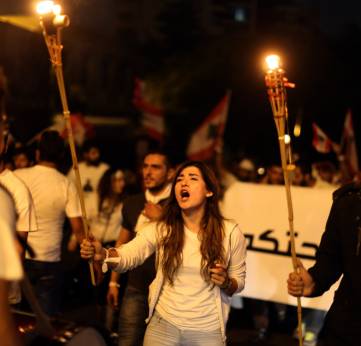
By Joseph A. Kechichian, Senior Writer
Beirut: Lebanese, for the second time, are marking their 72nd Independence Day tomorrow without a president. It seems there is little to celebrate amid the crippling political paralysis that has gripped the country for nearly a year and a half now.
Lebanon’s institutions have been deliberately frozen by merchant-politicians who pretend to lead the country.
Under the grim circumstances, all official ceremonies have been cancelled.
Perhaps the most pressing issue is a continuing garbage crisis in the country since May 17 this year where political disagreements over landfills resulted in large pile-ups of garbage throughout the country’s streets.
Agriculture Minister Akran Shehayeb recently admitted the crisis was not yet solved due to “differences over the sharing of profits” and he made the desperate suggestion to start exporting the garbage as the only way out.
Indeed, his bleak assessment of the garbage crisis is just a microcosm of Lebanon’s broader problems.
Lebanese politicians are at war and obstructionism is their weapon of choice.
Prime Minister Tamam Salam, meanwhile, is desperately trying to keep the state from collapsing entirely.
The Lebanese continue to pay the price and their frustration came to fruition over the summer with audacious demonstrations organised by #YouStink protesters who demanded a solution to the country’s garbage crisis, with some calling for the fall of the government entirely. General sentiments in the country echo the call of the protesters as Lebanese complain over corrupt politicians who seem to stay in power endlessly.
A demonstration organised by #YouStink and We Want Accountability protesters is scheduled for tomorrow to coincide with Independence Day.
Lebanon has been without a president since March 24, 2014, when Michel Sulaiman’s term ended. Since then, two Army Day celebrations have been cancelled since it is the job of the president to hand graduates their traditional swords.
Recently, Lebanese Parliament Speaker Nabih Berri formed a 10-member committee tasked with forming a new electoral law to address current political obstacles.
Lebanon’s major Christian parties have long demanded a new electoral law to replace the 1960’s voting system which distributes seats amongst the country’s various sects according to a skewed mechanism. Christians want to maintain their equal representation with Muslims without being beholden.
They view a growing Muslim majority as a threat to their political standing in the country. Various versions of the draft have been submitted 17 times, but so far none has been able to gain traction.



